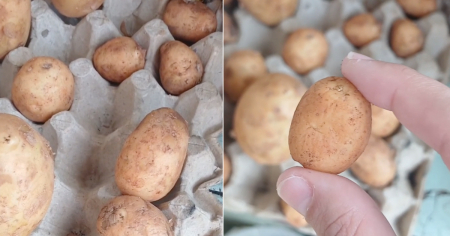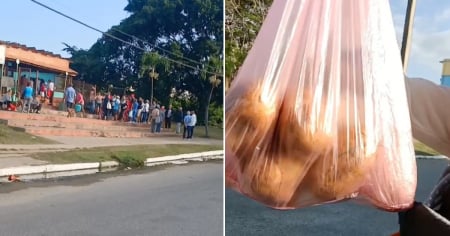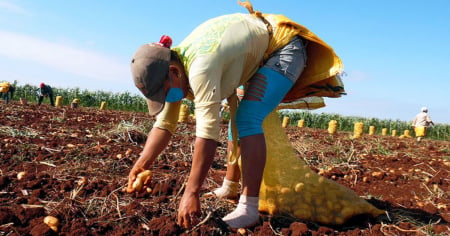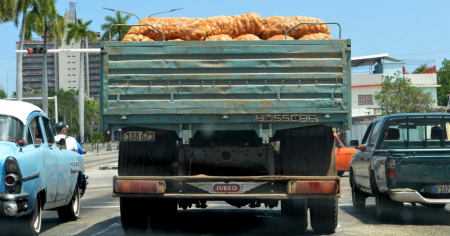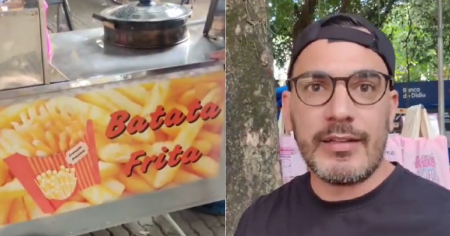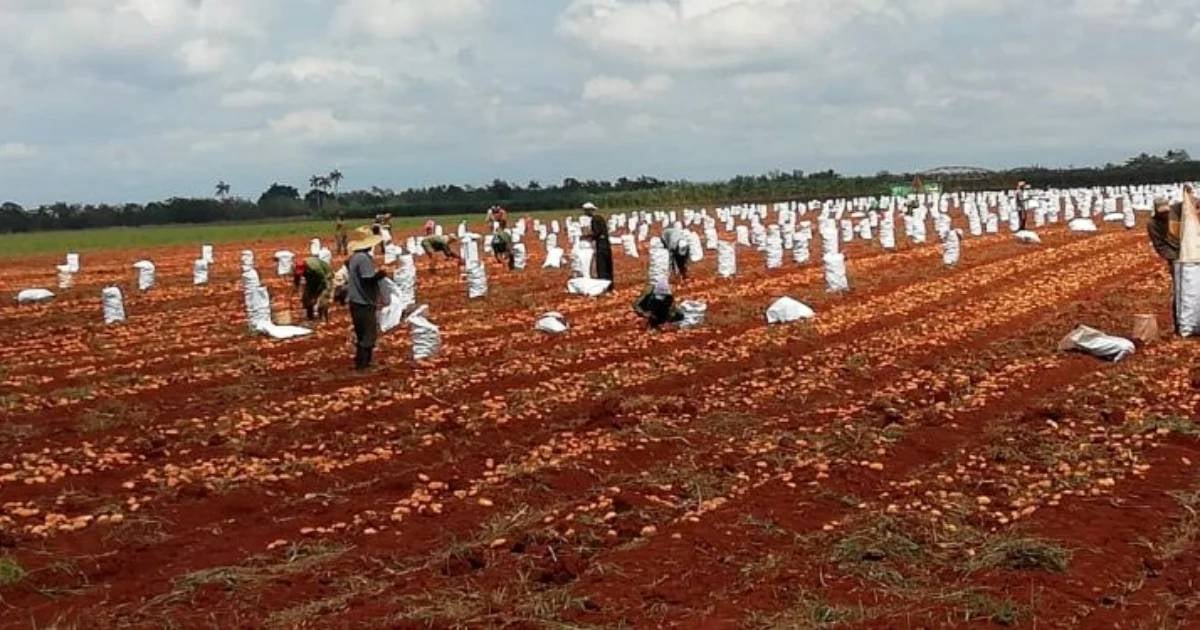
Related videos:
In Sancti Spíritus, as in the rest of the country, the arrival of the potato —one of the most anticipated foods by Cubans each year— has not brought relief, but rather frustration.
The so-called "national balance potato," intended to ensure an equitable distribution, has fallen victim to production problems, institutional disorganization, and politically-driven decisions lacking technical support, which has generated a new wave of uncertainty and discontent among the population, according to a text published on the digital site of the weekly Escambray.
The distribution began in the municipality of Taguasco, but the signs are clear: there will not be three pounds for everyone, as the Ministry of Agriculture initially promised. In some areas, only two pounds will be allocated per person, and in others, not even that.
Conclusion: In today's Cuba, even a product that is cultivated and planned for months in advance cannot be guaranteed with certainty.
Production in decline: poor soils, worse prices
The causes of the disaster are multiple, but they all point to the same structural problem: the widespread agricultural crisis that is choking the country. According to agricultural authorities, the harvest yields were uneven due to the varying quality of the soils and the limited availability of water. However, one of the most severe factors was the lack of economic incentives for producers.
The national balance potato is paid at 9 pesos per pound, a price that farmers consider insufficient to cover costs. In silent protest, many neglected their crops, further reducing yields.
In other words, the potato was planted but not cared for, and the harvest ultimately reflected that negligence forced by the absurd state price system.
Meanwhile, the agroecological potato, which is sold for 80 pesos per pound due to being produced with fewer inputs, did receive attention from farmers. The result: more yield and more profits for them, but a product that is inaccessible for most of the population relying on the state distribution network.
From the field to the informal market: potatoes at 150 CUP
The difference between the official price of 11 pesos per pound and the 150 or 200 pesos (or more) that it sells for in the informal market is yet another indication of the failure of the distribution and control system in Cuba. Without effective oversight mechanisms and with informal markets on the rise, potatoes are scarce in state markets and plentiful in private hands, at prices that are prohibitive for most.
The very dynamics of the harvest, which requires well-paid labor, drives producers to seek more lucrative ways to sell their products, evading the official scheme.
However, the issue was already known. Nationwide, the irrigation system was impacted by the ongoing blackouts, caused by fuel shortages resulting from the "blockade"... which means that the harvest will be lower than expected, according to the justifications of the regime.
A potato that reveals the hunger of a country
The potato has become a symbol. In Cuba, its arrival each year represents hope for a more complete meal, an economical alternative, a relief from rice and beans. But what should have been a guarantee of food security has turned into a symbol of poverty and institutional neglect.
Today, thousands of Cubans are waiting for a ration they aren't sure will arrive. Some will receive three pounds, others two, and some none at all. It will all depend on the municipal price negotiation committees, at least in Sancti Spíritus, the yield of the harvest, and how much can be "saved" amidst the scarcity.
Meanwhile, the food crisis deepens, official promises crumble, and the Cuban table remains empty.
Frequently Asked Questions about the Potato Crisis in Cuba and Its Social Impact
Why is there a shortage of potatoes in Sancti Spíritus and other regions of Cuba?
The shortage of potatoes in Sancti Spíritus is due to production problems, institutional disorganization, and political decisions lacking technical support. These issues have led to an uneven and inadequate distribution of this staple food, resulting in frustration and dissatisfaction among the population. The widespread agricultural crisis, characterized by poor soil quality and a lack of economic incentives for producers, has exacerbated the situation, leading to an insufficient harvest to meet national demand.
How is potato distributed in Cuba and why is there such inequality in its access?
The distribution of potatoes in Cuba is controlled by the state system, which has not ensured equitable delivery. Despite advance planning, the national potato supply has not reached all households, and in some places, only two pounds have been distributed per person. The lack of oversight and the rise of the informal market have allowed this product to be sold at exorbitant prices, which are unaffordable for most of the population. This chaos reflects a failure of the distribution and control system in the country.
What is the difference between national balance potatoes and agroecological potatoes in Cuba?
The national balance potato is purchased at a fixed state price of 9 pesos per pound, which causes farmers to neglect its cultivation as it is economically unviable. In contrast, agroecological potatoes are sold for 80 pesos per pound, as they are produced with fewer inputs and receive more care from farmers, resulting in higher yields and benefits for producers. However, this type of potato is virtually inaccessible for the majority of Cubans due to its high cost.
What is the relationship between the potato crisis in Cuba and the general food situation in the country?
The potato crisis reflects the broader food crisis facing Cuba. Finding food has become a daily challenge, with basic products like meat and rice reaching prohibitive prices. Resource scarcity, government inefficiency, and a focus on tourism at the expense of local consumption have exacerbated these difficulties. The potato, a symbol of food hope, has highlighted the shortcomings of the current system, leaving the population in a precarious situation characterized by constant uncertainty.
Filed under:

